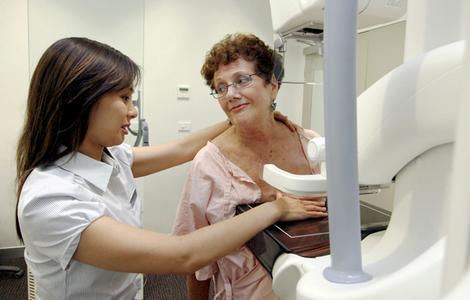The society's current guidelines recommend annual mammograms for women age 40 and over, as long as they are in good health. Age alone should not be a reason to stop having the screening, according to the guidelines, but women with short life expectancies or serious health problems should discuss the pros and cons of screening with their doctor, the society suggests.
Decisions about guidelines are constantly evolving, Lichtenfeld said, as more research is published.
Judith
Malmgren, an affiliate assistant professor of epidemiology at the
University of Washington, in Seattle, said the new study "confirms
earlier studies that biennial screening is fine for older women with
fewer false-positives."However, she said, women with a family history or those who feel uncomfortable with the longer interval should opt for annual exams.
The study was funded by a variety of grants from the U.S. National Cancer Institute and others. Braithwaite was partially funded by the Mentored Research Scholar Award from the American Cancer Society.
For older women ages 66 to 74, getting a mammogram every two years appears as good as getting one every year, according to a new study. "Your risk of having breast cancer detected at a later stage is no greater if you screen every two years compared to every year," said Dejana Braithwaite, an assistant professor of cancer epidemiology at the Helen Diller Family Comprehensive Cancer Center at the University of California, San Francisco.
Braithwaite compared annual with every-other-year screenings and the effect on whether the cancer was diagnosed at a late stage. She also compared how the two intervals affected the number of "false-positive" test results, in which mammograms interpreted as possibly showing cancer actually did not do so after further testing.
Women screened every year were more likely to have false-positive results than women screened every two years, she said.
The study is published online Feb. 5 in the Journal of the National Cancer Institute.
The debate about the frequency of mammograms and how long to continue them is ongoing. In 2009, the U.S. Preventive Services Task Force, an independent panel of experts, issued recommendations that women 50 to 74 have mammograms every two years. It recommends women under 50 discuss with their doctor the pros and cons of regular screening.
Other organizations continue to recommend annual mammograms beginning at age 40.
For the new study, Braithwaite looked at data on more than 140,000 women, ages 66 to 89, collected from 1999 to 2006. The women all had mammograms at facilities that participated in a data linkage between the Breast Cancer Surveillance Consortium and Medicare claims.
Nearly 3,000 of the women were diagnosed with breast cancer.
Braithwaite also had data on those who ended up with false-positive results. If cancer is suspected on a mammogram, more tests are ordered. If no cancer is found, this false-positive result can mean unnecessary procedures, added expense, time lost from work and anxiety, experts say.
The researchers estimated the probability of false-positives over a decade for the women 66 to 74.
"After 10 years of screening, almost half, or 48 percent, of the women who were screened every year had at least one false-positive," Braithwaite said. "Among those screened every two years, 29 percent had at least one false-positive after 10 years."
Results were similar in the upper age group, 75 to 89, she said.
The finding that late-stage cancers were no more likely in the women screened every other year is not a surprise, said Dr. Len Lichtenfeld, deputy chief medical officer for the American Cancer Society, who was not involved in the study.
"We've known that breast cancers in older women tends to be slower growing," he said.

No comments:
Post a Comment